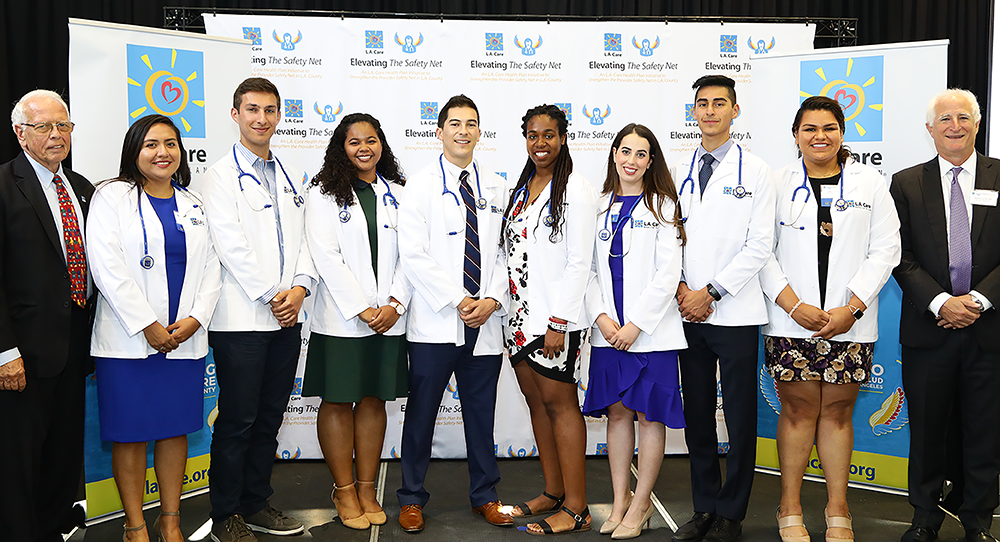
Grants are a Part of the Health Plan’s $155 Million Elevating the Safety Net Initiative
L.A. Care Health Plan, the nation’s largest publicly operated health plan, has announced its second round of Residency Support Program grants as part of the five-year, $155 million Elevating the Safety Net (ESN) initiative. The health plan is committing nearly $4.4 million to establish nine new residency positions at four medical institutions. Some of the funding will also support required core faculty positions. This is all part of L.A. Care’s efforts to address a growing physician shortage. A University of California, San Francisco report found California faces a shortage of 8,800 primary care physicians by 2030.
“Studies show that physicians often stay in the region where they complete their residency, and we need them here now,” said John Baackes, L.A. Care CEO. “Marginalized communities in L.A. County are already experiencing a physician shortage, so we have to do all we can to keep physicians here.”
In July 2019, L.A. Care committed more than $5.2 million to establish 14 new residency positions at five medical institutions. L.A. Care’s 2020 Residency Support Program grants will support residency slots launching in fall 2021 at the following institutions:
- Adventist Health White Memorial Charitable Foundation
- AltaMed Health Services Corporation
- Charles R. Drew University of Medicine and Science
- David Geffen School of Medicine at UCLA
Elevating the Safety Net has grown to include the Residency Support Program and training for non-clinical/paraprofessionals through our Community Health Worker (CHW) Training Program and In-Home Supportive Services (IHSS) Home Care Training Program. Forty-seven CHWs have successfully completed a rigorous 10-week training program facilitated by the Loma Linda University Health Promoters Academy, and the IHSS program has trained about 3,000 caregivers to help them better care for their client, who is often a family member, and to make them a more integrated part of the client’s care team. Over the next three years, the program will train another 3,000 caregivers.